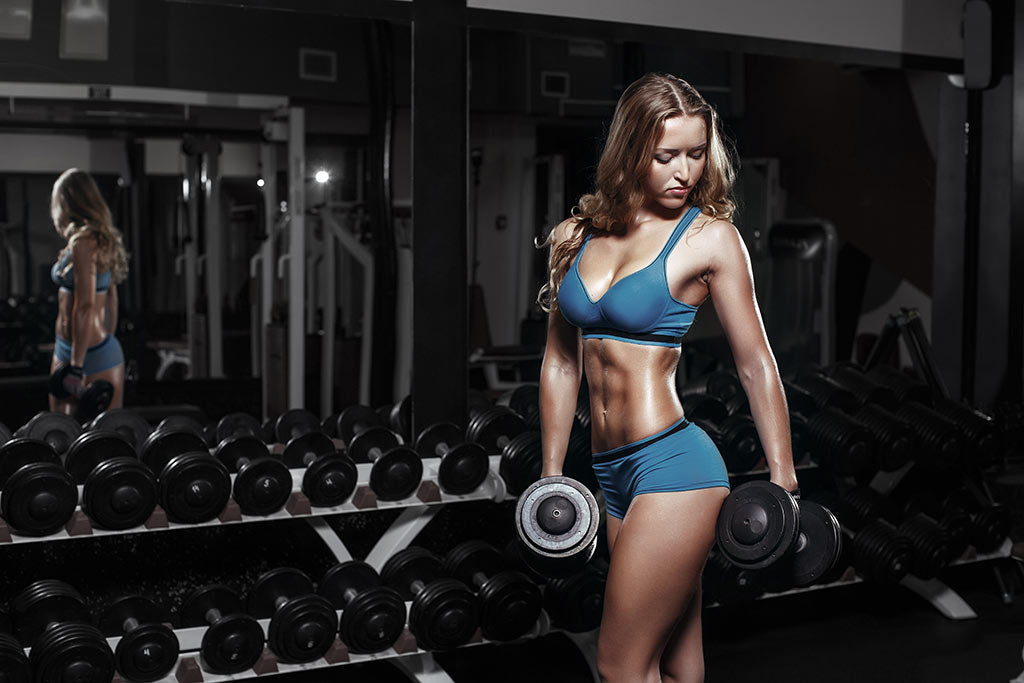
If you were a fan of the muscle magazines in the 1990s and 2000s, then you no doubt remember those days of "flat" formulas, when one solution always fit all, according to the prescribed muscle mag routines and nutritional guides. Yes, the 145 pound newbie and the 220 pound competitive bodybuilder ended up with the same post-workout meal, as absurd as that sounds to today's athlete. Yes, we're all better informed today, and we now realize that the cookie-cutter planned diets given to athletes years ago just don't jive with the science we know today.
Many factors go into planning post-workout nutrition, and the top question asked by confused athletes is usually "how much protein should I consume after my workout?"
The answer is that there is no flat answer to this question. It varies! Every athlete's body is different, and even with the same athlete, there are scores of circumstances which exist and can exert influence upon the amount of grams a lifter needs following his workout. Here are some important questions to ask yourself when determining your optimal post-workout protein requirements.

What is your weight training like?
If you're a man in your 60s that enjoys training with the Hammer Strength and Nautilus machines a few times a week, then your protein demands after a workout are going to be different from those of the CrossFit athlete that just completed a 55-straight-minute endurance session, or a pre-contest bodybuilder who just knocked out 90 minutes of quads, hamstrings, calves and cardio. Each workout involves tens of thousands of muscle fibers being recruited as the many sets and repetitions pass. Following a workout, many of these fibers are torn and exerted, in need of amino acids that post-workout consumption of protein does provide. And the amount of exertion from that workout - including factors such as duration, intensity, failure, and pure brute strength required - will have a very significant impact upon just how many muscle fibers were recruited.
Are you a natural athlete?
It is generally believed that the natural bodybuilder "tops off" at around 30 grams of protein assimilation capability following a workout. Anything more than this is presumed to be excreted away, wasted and forgotten. This isn't always true. A natural athlete named Ronnie Coleman is likely going to make better use of more protein than a natural athlete named Joe Schmoe who happens to weigh 145 pounds. We know the bodies of human beings vary greatly, and their nutritional needs vary as well. However, as a general rule, it is commonly accepted that the lifter making use of anabolic steroids is likely able to make up of about double the number of protein grams that the natural athlete can use. This is why many top bodybuilders often consume 400 to 500 grams of protein per day. This is an insane number - but they do see good results from a lot of that protein!

How many years have you been training?
As mentioned before, many factors will influence just how much protein the athlete needs, and can make use of following a workout. New trainers enjoying 'beginners gains' will make huge gains no matter what, and will optimally make use of protein. However, advanced athletes carrying dozens of pounds of hard-earned muscle from decades of training are also going to be able to use more protein than their younger, less trained counterparts. Their bodies have been conditioned to make use of this protein, and thei receptors are finely tuned to assimilate more protein than the athlete without all of that muscle. Make your estimation wisely based upon the number of years you have spent in the weight room.
How much do you weigh?
The bigger the athlete, the more protein he or she will be able to use following a workout. If you're naturally 150 pounds, then you probably already know that eating 50 grams of protein at once sitting is probably a very difficult feat for you - and you wouldn't be able to use all of it. On the other hand, if you're a 230 pound monster who was 190 pounds your freshman year in high school, and you've been chomping down 60 grams of protein at meals for years, then your body is likely more conditioned to make more use of higher amounts of protein. Use your best judgment.

How many meals are you currently consuming each day?
If you are only eating 3 meals each day, you're already short changing your muscle building potential. You'll see much better gains from splitting up your meals into 5 to 7 servings per day. This will give your body 5 to 7 small "windows" of anabolic receptiveness each day, in which you'll be apt to absorbing more dietary protein. Assuming you only absorb 30 grams per meal, do you really want to limit your body to absorbing 90 total grams of protein per day (30 grams times 3 meals)? Or, would you prefer 7 meals, allowing your body 210 potential grams of protein assimilation each day? Ask your muscles which they'd prefer! Bump up the number of meals you eat, and if you cannot, then be sure to pack in a fair amount of protein (up to 40 grams per meal).
What is the bottom line?
You need to ascertain your ideal number of protein grams to consume post-workout. If you're about 180 pounds, start with 30 grams. If you're over 200 pounds, move up to 40 grams. What is your ideal number? Start there, then add 5 grams to it! Why not move up into that zone of proximate development? Your best bet would be to try to find your perfect number, add five, and then put it to work. See what kind of results you enjoy. If you are happy with the gains you are experiencing, then stick with that number. If you feel excessively sore or just don't feel the results you desire, then bump up the post-workout protein grams for a few days.


